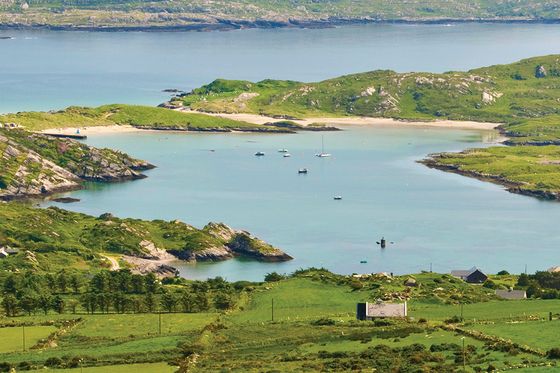
5 reasons to travel to the Balkans
Here’s why traveling to the Balkans, a largely unexplored region of Europe, should be on your bucket list.
If you’re looking for the crossroads of the world’s most influential cultures, the Balkans are calling you. Despite a turbulent past that includes the Balkan War of the 1990s, resulting in its current makeup of countries, the Balkans are safe—and stunning—today.
With breathtaking coastlines, friendly small villages, and diverse cultures, there are so many things to do and see in the Balkans. Here’s why traveling to the Balkans, a largely unexplored region of Europe, should be on your bucket list. We’ll dive into where to go and what to do in the Balkans, as well as all the big attractions, so you can plan your trip with confidence.
1. The history is fascinating
First, what are the Balkans? Prior to 1991, the Balkans included the major country of Yugoslavia, which included the republics of Slovenia, Croatia, Bosnia and Herzegovina, Serbia, Kosovo, Montenegro, Macedonia, and Vojvodina.
From 1991 to 2001, a number of wars broke out, and Yugoslavia dissolved into multiple independent countries that make up the modern-day Balkans.
Today, the Balkans include Albania, Bosnia and Herzegovina, Bulgaria, Croatia, Kosovo, Macedonia, Montenegro, Serbia, Slovenia, Romania, as well as parts of Greece and Turkey.

2. There are endless options for food
Just like the climate and geography in the Balkans, the food varies greatly too. Inland, you’ll find food similar to that in the Middle East or Eastern Europe: heavier, meat-centric dishes like goulash, kebabs, and pork schnitzel. On the coast, you’ll find lighter Mediterranean fare featuring lots of fresh seafood, stews, and olive oil. No matter where you are, one of the best things to do in the Balkans is try the incredible cuisine!
Kacamak
Made of wheat meal, barley, or corn flour and served with cheese and sour milk, kacamak is reminiscent of a porridge.
Cevapi
This grilled sausage dish is popular in Montenegro and throughout the Balkans.
Byrek
In Albania, don’t miss the byrek, a traditional savory pastry of the Ottoman Empire made with phyllo dough and filled with spinach, meat, or cheese.
3. The Balkans are known for great wine
For thousands of years, countries in the region have produced varietals that hold their own against the wines of Italy and France. Today, the Balkans are known for their bold, interesting reds, which have catapulted them to become the fifth-largest wine producer in the world. While much of the wine production stopped during the Yugoslav Wars, the vineyards have flourished in recent years. When you visit the Balkans, don’t miss a visit to Konavle in Dubrovnik, a vineyard that sat on the front lines of the war in the early 90s.
Prokupac
A regional red grape of Serbia, Prokupac is often used to produce darkly colored rosés with a high concentration of alcohol.
Pamid
One of Bulgaria’s most popular wines, Pamid is an approachable red table wine that, thanks to its light and fruity flavor, pairs well with the hearty, traditional cuisine of the country.
Zilavka
A fresh, full-bodied white wine produced in areas of Bosnia and Herzegovina and Macedonia.
Bermet
This sweet dessert wine is popular in the Sremski Karlovci region of Serbia. It gets its unique flavor from a combination of medicinal herbs, spices, and dry fruit.

4. The views are spectacular
There are so many things to see in the Balkans—from parts of nature you can’t find anywhere else, to incredible architecture and vibrant streets. Here are some of the best places to visit in the Balkans.
Lake Ohrid
Straddling the border of Macedonia and Albania, Lake Ohrid features spectacular views you have to see to believe. It also holds the distinction of being one of Europe’s oldest and deepest lakes, featuring some 200 unique species.
Perast, Montenegro
The southernmost glacial fjord in all of Europe, Perast is an idyllic setting on the Bay of Kotor in Montenegro.
Berat, Albania
A UNESCO World Heritage site, Berat is one of the best places to visit in the Balkans. It’s an old Ottoman town that feels like it hasn’t left the 1300s with its historic architecture.
Dubrovnik, Croatia
One of Croatia’s most interesting spots, the walled city of Dubrovnik is famous for its red-roofed buildings, Baroque architecture, and beautiful marble streets. Learn more about how to spend free time in Dubrovnik.

5. The weather is great, too
The best time to visit the Balkans is during the spring or fall, when the weather is at its mildest—and the crowds are, too. Summer tends to get fairly busy, as there are many things to see in the Balkans, and many of the countries are on the smaller side.
Because the Balkans are near the water and cover a wide geographic range, the weather tends to vary. In Croatia, for example, it can get below freezing in the winter, and as high as 80 degrees Fahrenheit in the summer. In Albania, it tends to be about 10-15 degrees warmer in both seasons. There are many things to do in the Balkans year-round, though, so just do your research and check the weather before packing your bags.
Know before you go
The Balkans succeeded in preserving much of their traditional cultures over the years, and many of their customs remain rooted in the past. What this means for tourists, however, is that ATMs may be harder to come by and credit cards aren’t widely accepted.
Additionally, be prepared to use a number of different currencies—while Montenegro, Kosovo, and Greece are the only countries on the euro, it’s popular (and preferred) to use the euro elsewhere.
While the cuisine is fresh, local, and provides plenty of options, Western food as we’re familiar with it hasn’t made its way to this area. So when you travel to the Balkans, be sure to pack some Tums or activated charcoal, just in case.
















































































